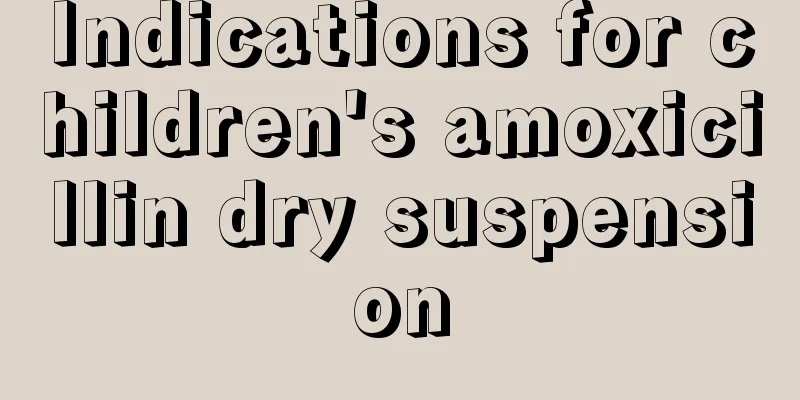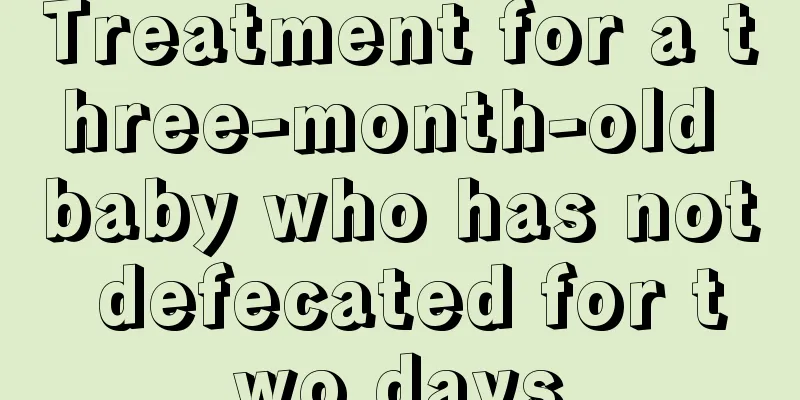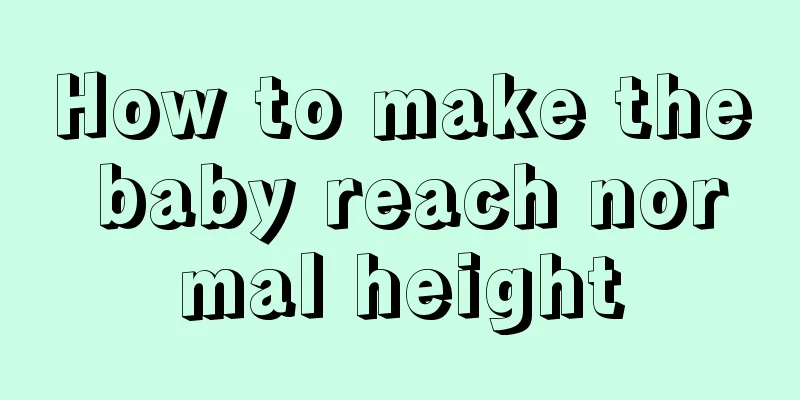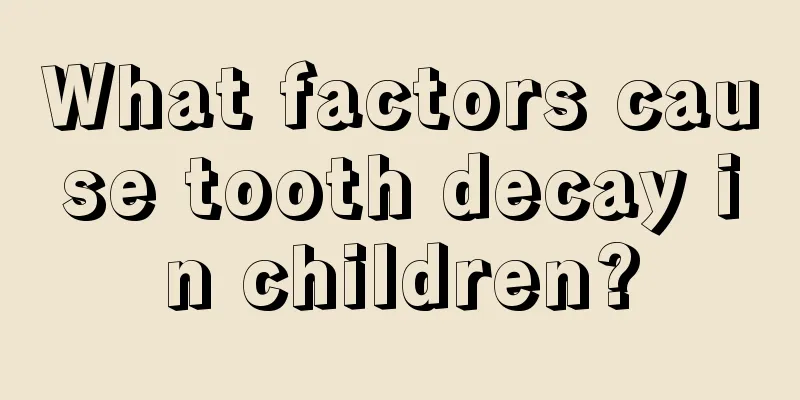How to protect children's teeth
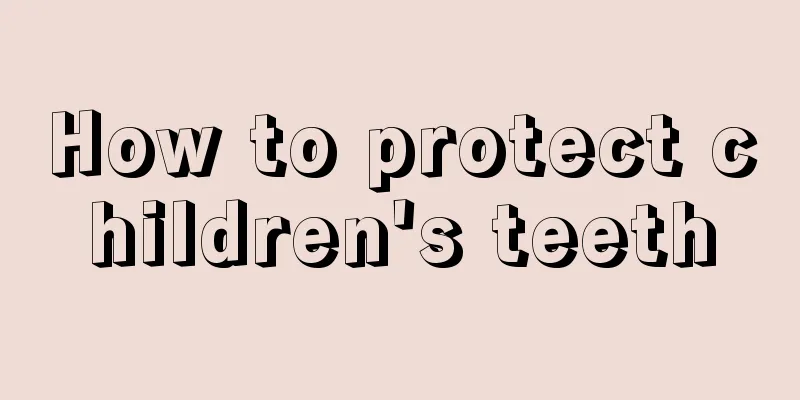
|
We all know that everyone will experience tooth loss once. However, many parents do not pay special attention to their babies after their teeth grow. They always feed their babies too sweet food and do not brush their teeth in time. Many people always think that babies will experience tooth loss anyway. In fact, this idea is very wrong. Once the baby has problems with his teeth, it will affect the child’s normal diet, and toothache is also a very painful thing. Let’s learn about how to protect children’s teeth. How to protect children's teeth 1. Strengthen the prevention and treatment of caries in deciduous teeth and permanent teeth It is especially important for children to develop good oral hygiene habits. I often hear some parents say: "Baby teeth will be replaced sooner or later, so why bother treating them?" This is actually a misunderstanding. This is acceptable for deciduous teeth that are about to be replaced, but it is incorrect to treat deciduous teeth that are not yet replaced. The loss of deciduous teeth has an important impact on children's digestive system and correct pronunciation, and should be treated promptly. Use pit and fissure sealants to prevent caries. Apply fluoride to the first permanent molars at the age of 6, and to the second permanent molars at the age of 11 to 14. Under the guidance of a dentist, choose the appropriate method of applying fluoride to prevent caries. 2. Learn the correct way to brush your teeth Choose a health toothbrush and fluoride toothpaste, brush your teeth in the morning and evening, rinse your mouth after meals, and develop good oral hygiene habits from an early age. Early prevention of the occurrence of dental and jaw deformities. Timely early treatment of deformities that have occurred can block their development, or through early control, guide the benign development of the dental and maxillofacial structures, thereby ensuring the healthy growth of children's oral, maxillofacial, craniofacial, physical and mental health. 3. Eat a healthy diet Eat less sugary snacks and delicate pastries that can easily stick to teeth. Get regular oral health checks. At least once a year to detect problems early and deal with them in a timely manner. To treat diseased deciduous teeth correctly, you must never ignore them, but give them appropriate treatment under the guidance of a dentist. Children's Oral Health How to Protect Children's Teeth How to Protect Children's Teeth What to eat to protect children's teeth The growth and development of children's teeth are closely related to the intake of nutrients. Parents should arrange for their children to eat more foods that are good for tooth health. 1. Foods rich in vitamins The health of gum tissue requires the support of vitamins A, C, and D. Vitamins A and D are mostly derived from milk and animal livers, while vitamin C is widely found in various vegetables and fresh green fruits. If you consume too little minerals or insufficient vitamins A and D, it will cause incomplete tooth development and poor calcification. The fiber in vegetables and fruits can also massage the gums and clean the teeth. Therefore, children should eat more vegetables and fruits to supplement their vitamin needs and increase the strength of their teeth. 2. Protein-rich foods Protein plays an important role in the formation, development, calcification and eruption of teeth. The source of protein is extremely rich. Animal protein includes milk, fish, and meat; plant protein includes cereals, beans, dried fruits, etc. If protein intake is insufficient, it will cause abnormal tooth morphology, degeneration of periodontal tissues, delayed tooth eruption, and at the same time increase the body's sensitivity to caries, which can easily lead to the occurrence of caries. 3. Foods rich in minerals Teeth, alveolar bones and jawbones are all hardened tissues, the main components of which are calcium and phosphorus. Adequate calcium and phosphorus are the basis for tooth formation. The best sources of calcium are milk and dairy products. Foods such as coarse grains, soybeans, kelp, and black fungus contain more phosphorus, iron, zinc, and fluoride, which help calcify teeth. The above is an introduction to how to protect children's teeth. After understanding it, we know that if we want children's teeth to be healthier, in addition to eating foods high in calcium, we should not let children eat too much sweets. In addition, we must help the baby develop the habit of brushing teeth. If the baby is relatively young, you can use gauze to wipe the baby's gums. It is worth noting that you must choose a softer toothbrush for the baby. |
<<: Why do children often hiccup?
>>: What to do if your child doesn't want to eat
Recommend
What are the treatments for dental caries in children?
Tooth decay is definitely very uncomfortable for ...
What to do if your one month old baby has phlegm
In daily life, many mothers find that their babie...
What to do if your child has violent tendencies
Children are originally the most innocent and hap...
White runny nose in child
It is quite common for children to have a runny w...
What should I do if my child is deficient in zinc and iron?
Nowadays, if we pay a little attention, we can fi...
Why does my child's leg hurt?
Children will always experience physical pain dur...
What should I do if my baby has no appetite?
What should I do if my baby has no appetite? It i...
What is the chronological order in which baby teeth grow?
Babies do not grow teeth within four months after...
What is the difference between hyperactivity and ADHD?
The child's psychological characteristics are...
Can babies with roseola take antipyretics?
Roseola infantum is a common viral disease that o...
What is the reason for the two-year-old baby's yellow hair?
The physical health of the baby is the most impor...
What should I do if my child has a fever at night?
In the cold winter, many babies with poor resista...
How can we quickly relieve toothache in children?
Toothache in children may be caused by gingivitis...
Children often have inflammation
Inflammation is a disease that occurs more freque...
The main symptoms of zinc deficiency in babies
We all know that children are in the stage of phy...
